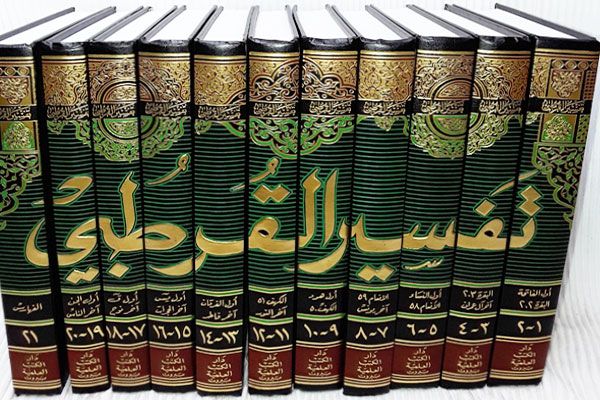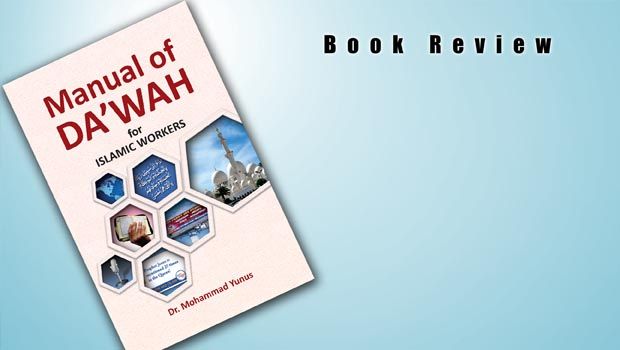Imam Al-Qurtub? [died 671H/1272CE]: Ab? ‘Abdullah Muhammad ibn Ahmad ibn Ab?bakr al-AnS?r? al-Khazraj? al-Qurtub?, also known as “the Shaykh of the Qur’anic commentators,” was a prolific scholar born and raised in Andalus whose learning and expertise extended to a broad variety of subjects, including not only the Islamic sciences but the social and cultural issues of his era. He was a beneficiary of the rich and vibrant intellectual heritage of Cordoba, where he had access to some of the world’s most renowned scholars, numerous schools and the biggest public libraries in the world.
He also lived during a period of constant conflict with the neighboring Christian kingdoms. In 627H his own father was killed defending their farm from invading Crusader armies, and al-Qurub? was forced to carry his body home and provide him a proper burial. At the age of 25, he was compelled to leave the region altogether with the fall of Cordoba in 633H/1236CE. He moved to Egypt where he travelled widely, continuing his tradition of learning and teaching. He was a contemporary and friend of the famous M?lik? jurist Shih?b al-D?n al-Qar?f? [died 684H/1285CE].
His focus was more on writing than teaching, and it is debated whether he had any students at all. Im?m al-Dhahab? described him as an ocean of knowledge who wrote many beneficial works which exhibited his broad knowledge and great wisdom. He eventually settled in southern Egypt and died on the 9th of Shaww?l 671H in the city of al-Miny?. In 1971 a shrine was built over his grave.
The Text
Al-Jami‘ Li Ahkam al-Qur’?n
[commonly known as Tafs?r al-Qurtub?]
Undoubtedly the most famous of Imam Al-Qurtub?’s works, this is an exhaustive, encyclopedic commentary of the Qur’?n, of about twenty volumes, that has continued to enjoy wide support and acknowledgment among Muslims since its publication.
Its title, which translates as “The Compendium of Legal Rulings of the Qur’an,” reveals its basic aim as a work—to deduce the practical, legal implications of the verses. And yet, while this work was intended to be a practical guide for the lives of its readers, it becomes much more than that due to the brilliant mind of the author, his broad knowledge, extensive travels, rich life experience and penetrating insight into the affairs that affect individuals and societies.
What makes this work unique include the extensive correlations with authoritative Prophetic traditions (the work includes more than 6500 hadith of the Prophet, which is about the size of Saheeh al-Bukh?r?); discussions of finer aspects of Arabic grammar, linguistics and classical poetry; exploring the additional implications of the various modes of Qur’?nic reading (qir?’?t); weighing various opinions and possibilities in light of the evidences and choosing the strongest view, in the spirit of a true faq?h (jurist); considering the statements of the Companions, early Muslims and previous commentators; and finally, providing critical comments on the social issues and deviant trends in Islamic thought, in the spirit of a theologian.
In sum, this is an evidence-based encyclopedia of the Qur’?n coming from the brilliant mind of one who is at once a muhaddith, grammarian, jurist, reciter, historian, theologian and social commentator. To quote the historian-scholar al-Dhahab?, “Im?m Al-Qurtub? has authored a Qur’?nic commentary in which he brings everything amazing.”
The Era
Im?m al-Qurtub? was a product of the great Islamic kingdom of al-Andalus in present-day Spain. This glorious civilization spanned nearly eight centuries, beginning in 711 with the Berber general Tariq bin Ziyad landing on the shores of Gibraltar until its fall in 1492 to King Ferdinand and Queen Isabella. Al-Andalus was a beacon of learning for the entire world and produced some of the greatest intellectual and scholarly minds of the ummah. This was a civilization that has much to teach us today in terms of intellectual and cultural vibrancy, regard for knowledge and literacy, public welfare and religious tolerance. Jews in particular flourished in Andalus and witnessed what is described as a golden age of their civilization.
Of historical interest is the fact that Im?m al-Qurtub? lived during a historical period of relative decline and turmoil in the ummah. He witnessed the tragic fall of Cordoba in 633H/1236CE, the jewel of Andalus and the capital of the Islamic state for over 525 years. He witnessed with his own eyes the destruction of the Crusaders, who killed his own father. He was eventually compelled to flee Andalus and settle in Egypt, where he witnessed the struggle against the invading Mongols, including the famous battle of Ayn Jalut in 658H/1260CE. He escaped the Crusaders only to meet the Mongols!
His was a time of military conflict, great turmoil and waves of Islamophobia, not unlike ours. Yet from our darkest times emerged some of our greatest minds. This, in essence, is the divine wisdom behind difficult times and behind human suffering— to distinguish heroes from others, the extraordinary from the ordinary.






